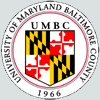| |||||||||||||||||||
Tips:  Range on the Protein: Protein ID Protein Position Domain Position: 
|
|---|
Weblogos are Copyright (c) 2002 Regents of the University of California
| DMDM_info@umbc.edu | 1000 Hilltop Circle, Baltimore, MD 21250 | Department of Biological Sciences | Phone: 410-455-2258 |




 iron-containing alcohol dehydrogenases (Fe-ADH)-like. Large metal-containing alcohol dehydrogenases (ADH), known as iron-containing alcohol dehydrogenases. They contain a dehydroquinate synthase-like protein structural fold and mostly contain iron. They are distinct from other alcohol dehydrogenases which contains different protein domains. There are several distinct families of alcohol dehydrogenases: Zinc-containing long-chain alcohol dehydrogenases; insect-type, or short-chain alcohol dehydrogenases; iron-containing alcohol dehydrogenases, and others. The iron-containing family has a Rossmann fold-like topology that resembles the fold of the zinc-dependent alcohol dehydrogenases, but lacks sequence homology, and differs in strand arrangement. ADH catalyzes the reversible oxidation of alcohol to acetaldehyde with the simultaneous reduction of NAD(P)+ to NAD(P)H.
iron-containing alcohol dehydrogenases (Fe-ADH)-like. Large metal-containing alcohol dehydrogenases (ADH), known as iron-containing alcohol dehydrogenases. They contain a dehydroquinate synthase-like protein structural fold and mostly contain iron. They are distinct from other alcohol dehydrogenases which contains different protein domains. There are several distinct families of alcohol dehydrogenases: Zinc-containing long-chain alcohol dehydrogenases; insect-type, or short-chain alcohol dehydrogenases; iron-containing alcohol dehydrogenases, and others. The iron-containing family has a Rossmann fold-like topology that resembles the fold of the zinc-dependent alcohol dehydrogenases, but lacks sequence homology, and differs in strand arrangement. ADH catalyzes the reversible oxidation of alcohol to acetaldehyde with the simultaneous reduction of NAD(P)+ to NAD(P)H. No pairwise interactions are available for this conserved domain.
No pairwise interactions are available for this conserved domain.

















